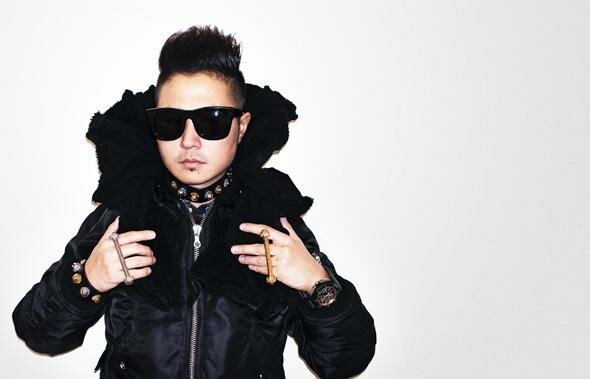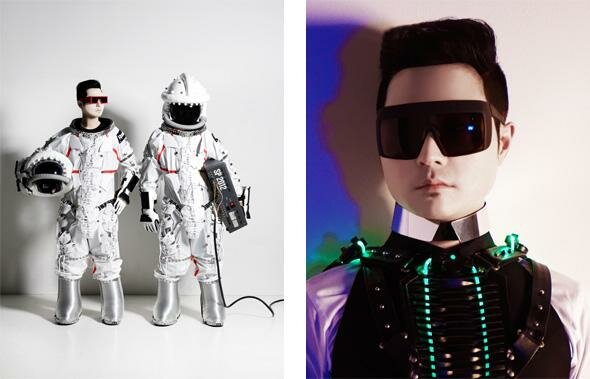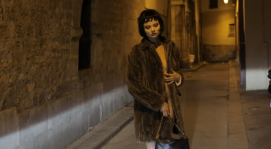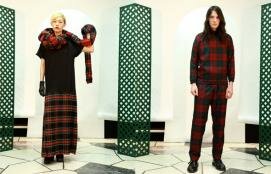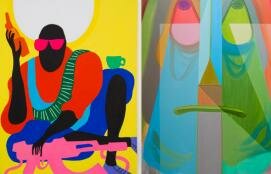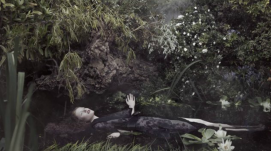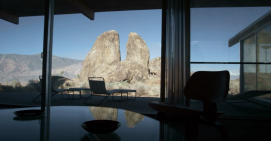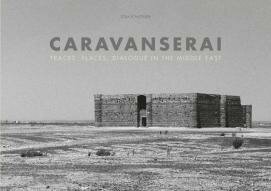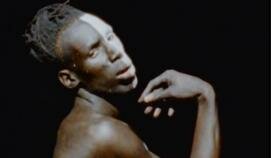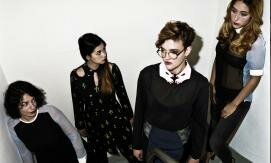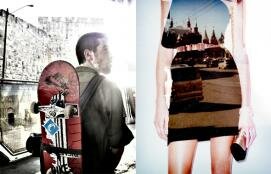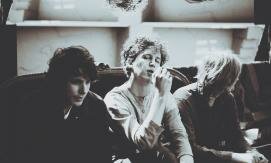- 1
- 2
- next ›
- last »
Verbal Interview
15/05/2012Verbal is as unique as it gets, whether its music or fashion everyone in Japan knows the name Verbal. If you were one of the very few to get your hands on the highly limited debut from M-Flo you would have realised it was a sign of things to come. Further down the line he worked together with NIGO and the Teriyaki Boys which perhaps gave him the necessary insight into music on a global scale. This balanced together with M-Flo, he has since become a well known figure in clubs all over Japan, DJing along with his wife Yoon, and saying this couple stands out is an understatement. Their unique interest in fashion has seen them build a empire with their jewelry label Ambush and this is just another element of a hugely creative mind.
James Oliver: What inspired you to become an artist?
Verbal: I always loved doing music, at high school I used to dance, there was a big Hip Hop dance movement so I was into that. Also I was in a band at high school with Taku, my current partner from m-flo. Taku and I were playing at dance parties and competitions and even had a record deal offered to us when we were in high school. But this was back in 1992, 1993, way before any form of Hip Hop was on the Japanese charts, so I felt that it was not realistic to be a rapper and be successful. Besides, my parents were really against me pursuing music as a career. You know, I thought I was the best rapper in the world as a 17 year old kid… but I ended up going to Boston College and graduated with a Business and Philosophy degree and this really cemented a lot of my beliefs and gave me a direction further on in my music career. Back then I was thinking this isn't what I want to do or anything but I realized that became a benefactor to my being today.
I actually worked for a while upon graduation, but quit immediately because I wasn't passionate about this certain line of work. Around then I returned to Japan for a break, and that is when I got back into the studio with my old friend from high school, Taku. He was already pursuing his music career and was struggling to get that first break. He had a track which he was asked to remix, and so he asked me to put a verse on it and that basically was the ticket into our music career. As I mentioned earlier, I didn't really see myself doing music as a profession, but I was told that they are pressing 500 copies of this remix on vinyl and I was like, why not? After that I went back to the States and got a call from Taku telling me it was a hit, and that the records shot off the shelves. So from then on, I started making more and more songs every time I returned to Japan, which eventually led us to sign with Avex.
JO: Can you tell us the meaning of m-flo?
V: Initially I named the group Mediarite Flow… I was really into Company Flow back then. I wanted to put the word "flow" in there, because when you rap, you flow. I was just into Hip Hop and obviously there was hardly any Hip Hop music in the charts in Japan at the time, so I felt foreign in the industry. It was like we were coming from outer space and hitting planet earth and influencing the music scene so that is where the "Mediarite" (meteorite) idea came from. But then people thought Mediarite Flow was too long so we just shortened it down to m-flo.
JO: How has m-flo evolved over time?
V: We have gone through lots of phases, and currently we are in our third phase. What I mean by that is when we came out with our first major record there were three of us, myself, Taku and Lisa, the singer. We made two albums with her, then she wanted to pursue a solo career so she left the group. After that it was Taku and myself so we launched a new project call "m-flo Loves...". So rather than saying "featuring" we coined and trademarked the phrase "loves", and we collaborated with 41 artists. I think it is safe to say that we popularized the whole "featuring" phenomenon in Japan. I remember when we first suggested that concept to the record label they were all against it because the vocalist wasn't technically in m-flo. Fast-forward to 2012, now that we finished the "loves" phase, on our new album Square One which released recently, we feature people but don't mention there names at all. We hide their identity to make people imagine and figure it out for themselves. I came up with this concept because, after years of DJ-ing around the world and watching people dance to new songs they are not even familiar with, I realized it's all about the music. If it's rocking, it's rocking. It might make you like the song more if you know who the vocalist is, but it should just be about the music. In Japan many people seem to care more about the level of fame of the artist, and not care much about those who are lesser known. Music is music, so I thought to do away with it all. Anyway, it's been creating a real buzz online, we're number one on the iTunes Japan Album Chart and Top 10 on the National Chart so I guess we didn't really need the name anyway.
JO: How has your personal taste in music matured?
V: When I first debuted I had a strong sense of how Hip Hop had to be. I was a backpacker, really underground, really inspired by Kool Keith, Gangstarr, NWA, Nas, Wu Tang Clan, etc. and that was all I listened to. But when I started DJing that really altered the way I approached music, especially the direction of how I produce music. It used to be more about the lyrics, I preferred the soundscape to adjust to my lyrical world. But when I started DJ-ing I realized there were other factors to consider in rocking the crowd. Not sure if matured, but those experiences have definitely honed my style. It was also a great timing when I began DJ-ing, since around that time many people were getting bored of the same old Hip Hop or rock. Artists gathered in the same clubs during the big electro boom about 5 years ago, and that expanded my horizons. You would see 19 year-old girl DJ's playing Three Six Mafia then playing Johnny Cash followed by some Japanese track so it was very random, but it was so cool, I can't describe it, you just had to be there. I felt it was the end of the previous era and an emergence of a new one. It helped me evolve as well and I think that is manifested in the recent album as well.
JO: As you have grown as an artist how have you managed to balance the commercial and creative side of the industry?
V: I think there is a big discrepancy between the commercial and the non-commercial, the major and the underground, but I am inspired by Andy Warhol's quote: "making money is art and working is art and good business is the best art". Apparently, Rei Kawakubo has a similar philosophy. I think there needs to be a coexistence of both but it is where your values are. You should never make music to make money, if anything you should be making money to make music. For me, I make jewelry, but I don't make "whatever" - looking things for the masses, I make items that are fun for me to wear but put it out there on a very mainstream level of exposure, so we bombard people with this image and told people this is how it should be done. Rather than be underground and small, I bring the underground concept to the overground and introduce it to people that way. I do things in an independent, cult way but then I expose things in mainstream way because I have access to the media through magazines and TV.
JO: You have teamed up with some pretty interesting names in a short time, is there anyone that you would like to work with?
V: I would love to work with Beat Takeshi Kitano. I grew up watching is TV shows, and his genius extends from comedy to movie-direction to painting. I don't know in what form, but it would really be an honor to work with him!
JO: Can you talk a bit about Teriyaki Boyz. How did you all come together and what was the initial vision of the group?
V: Teriyaki Boys consists obviously of NIGO, two guys from Rip Slyme and Wise and myself. I knew Ilmari (Rip Slyme) from back in the days, and we always talked about making music together, but we got so busy with our own groups (m-flo and Rip Slyme) that we never got to. One day NIGO decided to make a compilation called "NIGO (B)APE Sounds" and he wanted to have a collaborative compilation between Japanese rappers and foreign producers, with Pharrell Williams being one of them. For the compilation, we got the opportunity to work with DJ Shadow's track, so this marks the beginning of Teriyaki Boyz. When we started, we never thought it would become what it was. We thought it was just one song for the album, but then NIGO started getting us Ad Rock's tracks, then Daft Punk, and the rest is history. We made two albums and I did a mix-tape for Teriyaki Boyz.
JO: Coinciding with Bape and NIGO, the hype at the time was quite big. How did that effect the group?
V: Nigo used fashion as a medium, and along with Pharell who he did BBC with, and the way it traveled way beyond our expectation was just phenomenal. With Pharrell being involved, and with all the "bling-bling" hype around that time, people thought that NIGO just payola for everything. But contrary to popular belief, apparently Pharrell would just give NIGO beats in exchange for BAPESTA sneakers and it was pretty much a friendship thing. Having said that, we all learned and grew tremendously through our experiences with NIGO and Teriyaki Boyz, not to mention it was fun.
JO: How has NIGO's influence helped you over the years?
V: Watching NIGO at work was amazing. He has drastically changed many of my views on fashion and attention to detail, and has encouraged my desire to pursue the business-side of entertainment. Also, since I speak English, he has allowed me to closely communicate with the foreign producers, and further down the line I got more involved with the contractual side of things. This allowed me to see firsthand the business of working internationally, and enabled me to come up with new schemes and methods to facilitate such overseas interactions. So through Teriyaki Boyz I made some great friends, people like Pharrell, Kanye West, Will.I.Am, and so many others who opened my eyes to many things.
JO: Last year you debuted your first solo album. How did your approach to this differ from working with other artists?
V: I am not a solo artist and at the time I was getting encouraged to do something solo. Up until that point I had a certain drive and vision for music but when I released the album it was on the week of the March 11 Tohoku earthquake, so it was obviously a dark time of me and everyone's life in Japan. The release was fun and and the experience but it kind of symbolized my end to a certain way of looking at things and the start of a new way, as my values changed and I started to reflect on what was more important in life.
JO: Your influence in fashion is unquestionable. Your taste has changed over the years, can you talk about where you get your inspiration from?
V: Ten years ago I used to think Hip Hop fashion had to be a certain way, like a stereotype. I always had an admiration for Comme des Garcons and other brands but I just couldn't see myself wearing them. But my views on fashion changed as my views on music started to change. There was a point when I was disillusioned with the Hip Hop scene here, the people were so attached to certain values that I thought had nothing to do with music. I thought, why did you have to look a certain way to be a part of that, I didn't think it was fun and didn't make sense to me. But I became more free about the way I dressed, thanks to my wife Yoon, as she used to give me alternative fashion tips and flat out telling me certain clothes don't look good on me. For example, from a guy's perspective, certain looks were cool, but from a, objective, girls' perspective it would look bland or boring. She taught me that fashion should be fun and liberating, obviously for the wearer but also for the people who see you. So the freer I became with how I dressed, the more it consolidated my signature style, and people started associating me with certain looks and fashion.
JO: Can we talk about Ambush for a minute, what is it about and how does it reflect your personal style and taste?
V: It started in 2002, and I pretty much incorporated the company to accommodate Yoon to move to Japan. We met in Boston during our college years, and back then we were dating and doing the Japan-US long distance thing. I wanted her to come to Japan because my music career was getting busy. She was working in a graphic design firm in Boston at the time, so I naively thought if I start a company where she designs and I run the business, it could work out. So she moved to Japan, and at first it was really tough to get the operation going, but eventually we started a jewelry brand, it everything slowly came into place. We started Antonio Murphy & Astro (high-end jewelry, worn by Kanye, Jay-Z, Big Sean, etc.) in 2004, and AMBUSH in 2008, so we are still very young, but as a creative house that embodies jewelry, graphic design, styling, etc., I think the name speaks for itself, we just 'Ambush' the unexpected masses with new ideas and ways.
We pretty much make what we feel like wearing. We are sensitive to trend, but we, especially Yoon ends up usually going against what's trendy, and comes up with crazy concepts. Her and I have different approaches to design, as my influences derive from Hip Hop and skateboard cultures, whereas Yoon is from a rock background since she grew up in Seattle. I would make bigger pieces and prefer certain texture on jewelry while she has a certain edge to the design process that I don't have. But ultimately it comes together creating a unique vibe.
James Oliver








